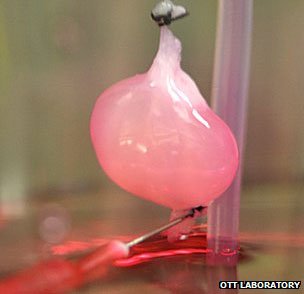Pharmaceutical company Pfizer has agreed to pay $491 million to settle a probe into illegal marketing of a drug by Wyeth, a firm it had acquired in 2009.
The case revolved around Rapamune, a drug prescribed to prevent rejection of transplanted kidneys.
It was alleged that sales staff of Wyeth encouraged doctors to prescribe Rapamune for other organ transplants, which were not approved by regulators.
Pfizer stressed the illegal marketing occurred before it acquired Wyeth.

Pfizer has agreed to pay $491 million to settle a probe into illegal marketing of Rapamune, a drug by Wyeth
“Pfizer was not a subject or target of this matter, and cooperated fully with the government from the time it learned of this investigation in October 2009,” the company said in a statement.
The US Department of Justice said: “Wyeth trained its sales force to promote Rapamune for off-label uses not approved by the FDA, including ex-renal uses, and even paid bonuses to incentivize those sales.”
This is not the first time that Pfizer has had to settle a dispute surrounding Wyeth.
Last year, it agreed to pay $55 million to settle charges that Wyeth promoted its heartburn drug Protonix for unapproved uses.
The latest settlement comes as Pfizer reported that its earnings more than quadrupled during the second quarter.
Pfizer made a net profit of $14.1 billion during the period, compared with $3.2 billion during the same period a year ago.
Its shares ended the day up 0.4%.
US scientists say a kidney “grown” in the laboratory has been transplanted into animals where it started to produce urine.
Similar techniques to make simple body parts have already been used in patients, but the kidney is one of the most complicated organs made so far.
A study, in the journal Nature Medicine, showed the engineered kidneys were less effective than natural ones.
But regenerative medicine researchers said the field had huge promise.
Kidneys filter the blood to remove waste and excess water. They are also the most in-demand organ for transplant, with long waiting lists.
The researchers’ vision is to take an old kidney and strip it of all its old cells to leave a honeycomb-like scaffold. The kidney would then be rebuilt with cells taken from the patient.
This would have two major advantages over current organ transplants.
The tissue would match the patient, so they would not need a lifetime of drugs to suppress the immune system to prevent rejection.

Researchers at Massachusetts General Hospital have taken the first steps towards creating usable engineered kidneys
It would also vastly increase the number of organs available for transplant. Most organs which are offered are rejected, but they could be used as templates for new ones.
Researchers at Massachusetts General Hospital have taken the first steps towards creating usable engineered kidneys.
They took a rat kidney and used a detergent to wash away the old cells.
The remaining web of proteins, or scaffold, looks just like a kidney, including an intricate network of blood vessels and drainage pipes.
This protein plumbing was used to pump the right cells to the right part of the kidney, where they joined with the scaffold to rebuild the organ.
It was kept in a special oven to mimic the conditions in a rat’s body for the next 12 days.
When the kidneys were tested in the laboratory, urine production reached 23% of natural ones.
The team then tried transplanting an organ into a rat. Once inside the body, the kidney’s effectiveness fell to 5%.
Lead researcher Dr. Harald Ott said that restoring a small fraction of normal function could be enough: “If you’re on haemodialysis then kidney function of 10% to 15% would already make you independent of haemodialysis. It’s not that we have to go all the way.”
Dr. Harald Ott said the potential was huge: “If you think about the United States alone, there’s 100,000 patients currently waiting for kidney transplants and there’s only around 18,000 transplants done a year.
“I think the potential clinical impact of a successful treatment would be enormous.”
There is a huge amount of further research that would be needed before this is even considered in people.
The technique needs to be more efficient so a greater level of kidney function is restored. Researchers also need to prove that the kidney will continue to function for a long time.
There will also be challenges with the sheer size of a human kidney. It is harder to get the cells in the right place in a larger organ.
[youtube 5wfdhB_VyJw]


